Parkerede Lufthansa-fly. (Foto: Lufthansa | PR)
Luftfartens tab opjusteres igen
Luftfarten har i 2020 udsigt til at tabe mere end 2,13 billioner kroner. Det er næsten en tredobling af det første skøn for fem uger siden og indrammer i høj grad de aktuelle udfordringer.
Den 5. marts forlød det fra den internationale luftfartsorganisation IATA, at flyselskabernes tab som følge af COVID-19 i 20120 ville løbe op i 113 milliarder dollars. Den 24. marts blev det tal forhøjet til svimlende 252 milliarder dollars, og tirsdag har IATA offentliggjort en ny beregning, og nu er tabet opjusteret til 314 milliarder dollars.
Det svarer til 2.133 milliarder danske kroner eller mere end nutidsværdien af 50 storebæltsbroer.
Forventer seks procent recession
Det nye estimat betyder, at flyselskabernes omsætning i 2020 forventes at falde med 55 procent i forhold til 2019. Det er især årets andet kvartal, der vil blive ramt.
Det nye estimat betyder, at flyselskabernes omsætning i 2020 forventes at falde med 55 procent i forhold til 2019. Det er især årets andet kvartal, der vil blive ramt.
Først og fremmest er der udsigt til en dyb recession i andet kvartal. Verdensøkonomiens samlede bruttonationalprodukt ventes i andet kvartal at falde med seks procent, hvilket er noget mere end de to procent, der var niveauet på det værste tidspunkt under finanskrisen. Den økonomiske recession rammer efterspørgslen på flyrejser med otte procent.
Et andet forhold, der har udvidet flyselskabernes krise, er de mange myndighedsrestriktioner, der tvinger flyselskaberne til at indstille operationerne. I begyndelsen af april var antallet af flyvninger på globalt niveau faldet med 80 procent i forhold til samme tidspunkt året før.
Det forventes at indenrigstrafikken i mange lande vil kunne se en genrejsning til begyndelsen af årets tredje kvartal i takt med, at restriktionerne bliver ophævet. Derimod vil det tage noget længere tid, før den internationale flytrafik begynder at stige igen, da myndighederne formodes at ville fastholde restriktionerne på dette område i noget længere tid.
Opfordrer til regeringshjælp
IATA´s generaldirektør Alexandre de Juniac opfordrer regeringer over hele verden til at yde direkte støtte for tabte indtægter, adgang til lån eller lånegarantier samt midlertidig fjernelse eller lempelse af flyafgifter.
IATA´s generaldirektør Alexandre de Juniac opfordrer regeringer over hele verden til at yde direkte støtte for tabte indtægter, adgang til lån eller lånegarantier samt midlertidig fjernelse eller lempelse af flyafgifter.
“Luftfartsindustriens udsigter bliver mørkere dag for dag. Omfanget af krisen vil gør et skarp V-formet opsving usandsynligt. Realistisk set vil det være et U-formet opsving med indenrigsrejser, der kommer hurtigere tilbage end det internationale marked. Der er udsigt til at mere end halvdelen af passagerindtægterne vil forsvinde,” lyder IATA-direktørens vurdering.
“Flere regeringer har igangsat nye eller udvidede økonomiske hjælpepakker, men situationen er fortsat kritisk. Flyselskaber vil kunne bruge 61 milliarder dollars i kontante reserver alene i andet kvartal. Det sætter 25 millioner jobs, der er afhængig af luftfarten på spil. Og uden hurtig hjælp vil mange flyselskaber ikke overleve frem til det økonomiske opsving.”
Norwegian aksjen faller ytterrliger da børsen åpnet nå kl 0900
Wizz Air Airbus A320 (Foto: Balazs Pinter | GNU 1.2)
Wizz Air vil afskedige hver femte ansat
Wizz Air forventer betydelige tab som følge af COVID-19-pandemien. I første omgang afskediges 1.000 ansatte, mens piloter og kabinepersonale skal 14 procent ned i løn.
Wizz Air, der er Europas tredjestørste lavprisflyselskab, er et af de mest velkonsoliderede europæiske flyselskaber med en likviditetsreserve på omkring 1,5 milliarder euro, eller lidt mere end 11 milliarder kroner.
Alligevel er selskabet hårdt ramt af coronakrisen, der dog ikke kan forhindre et nettooverskud for regnskabsåret 2019/20 på et sted mellem 2,0 og 2,1 milliarder kroner.
Oprindeligt var det forventet, at overskuddet ville være noget højere, men et tab på prissikring af brændstof er løbet op i over 550 millioner kroner, hvilket sætter sine spor i regnskabsperioden, der sluttede den 31. marts.
Lønnedgang i 12 måneder
I marts faldt trafikken med 34 procent i forhold til samme måned året før, og lige nu opererer Wizz Air kun tre procent af kapaciteten i forhold til perioden før COVID-19-pandemien.
I marts faldt trafikken med 34 procent i forhold til samme måned året før, og lige nu opererer Wizz Air kun tre procent af kapaciteten i forhold til perioden før COVID-19-pandemien.
Derfor er det også nødvendigt for selskabet at begynde at dreje på nogle af de håndtag, der kan bidrage til at reducere omkostningerne. Der har været forhandlinger med leverandørerne om forbedrede aftaler og ændrede betalingsbetingelser. Herudover er det også blevet besluttet, at man frem til udgangen af regnskabsåret 2022/23 gradvist vil udfase 32 ældre fly, der er på leasingaftaler.
Derimod har det ikke været muligt at undgå afskedigelser. I alt 1.000 stillinger vil blive nedlagt, hvilket svarer til 19 procent af den samlede arbejdsstyrke i selskabet.
Herudover er der indgået aftale om, at topledelse og mellemledere vil blive sat 22 procent ned i løn, mens piloter og kabinepersonale i gennemsnit vil få lønpakken reduceret med 14 procent. Aftalen gælder foreløbigt i regnskabsåret 2021, der løber fra 1. april 2020 til 31. marts 2021.
Forventer at fastholde høj vækst
Wizz Air bekræfter samtidig, at selskabet på kort sigt vil justere kapaciteten i forhold til markedsforholdene, og at man vurderer situationen marked for marked. Men samtidig understreger man, at det stadig er planen at vokse med omkring 15 procent årligt.
Wizz Air bekræfter samtidig, at selskabet på kort sigt vil justere kapaciteten i forhold til markedsforholdene, og at man vurderer situationen marked for marked. Men samtidig understreger man, at det stadig er planen at vokse med omkring 15 procent årligt.
“Vi har taget forskellige initiativer til at beskytte virksomhedens position på en kontrolleret måde under COVID-19-pandemien og gennemgår konkurrenceevnen og fordelingen af selskabets aktiver. Vi arbejder også med at forbedre vores strategiske, omkostnings- og cashposition yderligere i kølvandet på denne krise for at sikre, at vi kan levere vores langsigtede vækstmål,” siger koncernchef József Váradi i en kommentar.
Fra Billund Lufthavn fløj Wizz Air før coronakrisen til Wien i Østrig, Tuzla i Bosnien-Hercegovina, Vilnius i Litauen, Gdansk, Krakow og Warszawa i Polen, Bukarest, Cluj-Napoca og Iasi i Rumænien samt Kiev i Ukraine. Herudover er der annonceret en rute til Sofia med opstart den 2. juni.
Det ungarske lavprisflyselskab har lidt færre ruter fra Københavns Lufthavn, hvor der hidtil har været fløjet til Sofia, Kutaisi i Georgien, Skopje i Nordmakedonien samt Kiev og Lviv i Ukraine.
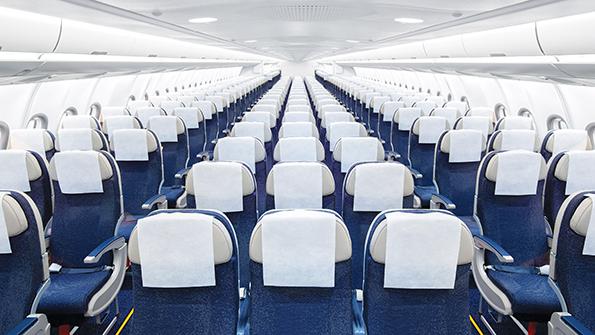
Credit: AirbusThe novel coronavirus pandemic has forced the entire aviation industry to change at a moment’s notice and re-think formerly benign issues such as how flight decks are wiped down and whether cabin air systems, as designed, are sufficient for protecting those onboard. The European Union Aviation Safety Agency (EASA) addressed both issues as part of a safety information bulletin (SIB) series aimed at limiting the spread of the COVID-19—but not without creating some uncertainty.
EASA’s SIB urged operators to crack down on pilots and cabin crew members using their own cleaning products on aircraft. Using unapproved cleaning agents can damage surfaces or mix with other cleaning agents to create fumes that could endanger passengers and crew members, the agency says.
“Aircraft operators should, to the practicable extent, provide appropriate and sufficient disinfectants (e.g., disinfectant wipes) for all crew members, and establish appropriate procedures/guidance on their use, making sure that all possible touch points and transmission-capable surfaces are appropriately treated,” EASA says. “This should occur before flight crew compartment and cabin preparation, with emphasis on ensuring all aircraft systems are correctly set before use.”
Approved procedures and cleaning agents are discussed in more detail in other agency guidance and recommendations from the European Center for Disease Prevention and Control, EASA says.
EASA’s call came on the heels of an Air Line Pilots Association (ALPA) plea to the FAA for mandates aimed at U.S. operators. The FAA in mid-March FAA issued advisory material on how operators can protect front-line employees and passengers during the pandemic, but ALPA says more is needed. In a March 31 letter to FAA Administrator Steve Dickson, ALPA President Joe DePete said that some airlines are using cleaning agents that do not meet U.S. Centers for Di-sease Control and Prevention guidance.
“We are aware of airlines claiming to have cleaned aircraft with alcohol-based disinfectants that fail to comply with the minimum 70% alcohol-based solution,” DePete wrote. “The FAA should make airlines aware of their obligation to stringently adhere to these standards. We suggest including a list of specific products recognized to disinfect for the virus causing COVID-19.” FAA has issued recommendations to operators, but as of April 8, had stopped short of mandating them.
ALPA leaders met with top FAA officials on April 8 and came away less than satisfied.
“Unfortunately, the FAA is refusing to act, putting flight crews and the flying public at great risk,” DePete wrote in a letter to Transport Department Secretary Elaine Chao. “This bureaucratic inertia needs to stop—and action must be taken now to protect lives.”
In the U.S., flight attendants were raising novel coronavirus-related cabin health concerns well before the World Health Organization declared the situation a pandemic on March 11. The Association of Flight Attendants urged hand sanitizer stations at airports and in aircraft and provision of kits for flight attendants with non-latex gloves and N95 masks, among other precautions.
EASA’s operational guidance also tackled minimizing the virus’s presence in cabins. Aircraft with High Efficiency Particulate Air (HEPA) filters in their cabin air system are well-equipped to minimize spread of the novel coronavirus, but those without should consider minimizing cabin air recirculation, the agency concludes. EASA’s latest information on preventing the virus and the COVID-19 illness it triggers—updated April 7—revises previous guidance that recommended using air conditioning, which draws in fresh air, as much as possible.
“Whenever performing commercial air transport of passengers during the COVID-19 outbreak, aircraft operators employing recirculation of cabin air are recommended either to install and employ HEPA filters, according to the manufacturer specifications, or to avoid the use of cabin air recirculation completely,” the agency says. EASA adds that safety-critical functions such as avionics cooling should be factored into any decision.
Recycling air lessens the load on air conditioning systems, which on most aircraft use air diverted from the engines. While this provides fresh air, it also reduces engine efficiency. Shutting off recirculation taps the air conditioning system, putting more fresh air through the cabin.
HEPA filters “have demonstrated good performance with particles of the SARS-Cov-2 virus size (approximately 70-120 [nanometers]),” EASA explains. HEPA filters are standard on some aircraft—but not all. Suppliers including Donaldson and Pall Aerospace have developed retrofits for most transport category aircraft.
Even when using HEPA filters, EASA suggests operators boost fresh air intake by setting fan pack flow settings to “high” or the equivalent setting that increases fresh air flow.
“Operators should confirm with the aircraft manufacturers the practice of selecting the configuration high pack flow and follow their instructions for continuous use,” the safety agency adds.
Lederen for amerikanske flygere forbannet på FAA. (Red.)
ALPA President Joe DePete To FAA: Get Out Of The Way
In a stinging editorial, the Air Line Pilots Association President Joe DePete says that the FAA “is not doing its job by regulating when it’s urgently needed to protect us as we help in the fight against the pandemic. The FAA is refusing to make sure that U.S. airlines follow the U.S. Centers for Disease Control and Prevention (CDC) COVID-19 guidelines for exposure notification and workplace sanitation—guidelines that, if enforced, will not only help protect our pilots’ health and that of our families but will also help make certain that pilots are available to continue to help the world respond to the pandemic.”ALPA alerted the Department of Transportation last week and said the FAA should “immediately issue a mandatory order requiring U.S. airlines to meet CDC guidelines for employee test-positive notification and flight deck cleaning and sanitation.” More than a week before, ALPA asked Administrator Steve Dickson to have the FAA to produce an “order, directive, or regulatory requirement expressly mandating that airlines follow CDC guidance.” The FAA has not done so.
“It’s outrageous that, at a time of crisis, one part of the federal government, the FAA, is hindering another, FEMA, as it works to transport lifesaving supplies to those who are battling this pandemic,” DePete said. “This is no time for bureaucratic bungling or turf wars. The only war we should be fighting right now is the one against COVID-19—and we should be doing everything in our power to keep the soldiers on the frontlines safe and healthy.”
Boeing: Q1 Deliveries Down
Boeing delivered just 50 aircraft in the first quarter of this year, one-third the volume of an already down 2019. Dreamliners led the deliveries this quarter, with 28 of the 787s put into service, along with 10 767s, six 777s and just five 737s. A combination of the 737 MAX grounding with the subsequent halting of its production, along with COVID-related shutdowns at Boeing’s factories, are the core reasons for the decline.
Boeing’s troubles continue to mount, with a total of 150 737 MAX orders having been canceled and hundreds of firm orders either canceled or delayed due to sharply reduced demand. Already on its back foot from the 737 MAX crisis, Boeing could have two years running with dismal sales. Its deliveries in 2019 were less than half of the previous year’s, just 380 against 806 in 2018, the last year the highly booked 737 MAX was flying and in demand by a growing air-travel industry.
Closing at $141 a share, Boeing’s stock was down 4 percent on the day, though that’s up from $95/share, where it bottomed out on March 20. The company will release full first-quarter results on April 29.
Best of the Web: An Idled Airline Fleet
Aviation has suffered its downturns, but nothing like the rapid impact of covid-19 on world airline fleets. Thousands of aircraft are parked, as detailed in this video from the Ishrion Aviation YouTube channel.
US airlines to receive $25bn rescue package
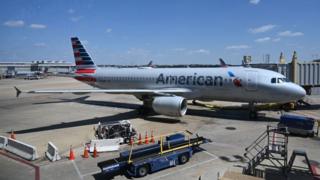 Image copyright Getty Images
Image copyright Getty Images
The US has agreed a roughly $25bn (£19.8bn) rescue package for 10 of the country's biggest airlines as travel plunges due to the coronavirus.
American Airlines, United, Delta and Southwest are among the recipients.The money is to be used for payroll and will be provided through a combination of low-cost loans and direct grants.
Congress had planned for the aid as part of its roughly $2tn emergency relief bill last month but airlines had been negotiating the deal.
Rescue package
Under terms outlined by the US Treasury Department last week, major airlines were expected to repay about 30% of the payroll funds they receive.Congress had also included conditions when it crafted the emergency aid law, such as prohibitions against involuntary furloughs and bars on reducing worker pay and benefits until the end of September.
The terms also limit share repurchases until the end of September 2021 and executive pay until the end of March 2022.
US Treasury Secretary Steven Mnuchin on Tuesday said the airline deal would "support American workers and help preserve the strategic importance of the airline industry while allowing for appropriate compensation to the taxpayers".
"We look forward to working with the airlines to finalise the necessary agreements and disburse funds as quickly as possible."
Confirmation that the airlines would use the payroll bailout lifted industry shares in after-hours trading, sending American Airlines up more than 8% and United Airlines up more than 7%.
American Airlines boss Doug Parker said his company expects to receive more than $10bn in support, including$5.8bn in payroll funds, of which it expects about $4.1bn is set to be a grant. The firm will also apply for a government loan through a different programme.
"The support our government has entrusted to us carries immense responsibility and an obligation that American Airlines is privileged to undertake," American chief executive Doug Parker said.
Other companies set to receive aid include Southwest which said it would receive a total of $3.2bn, including $2.3bn in payroll support.
Bailout concerns
Global airlines group IATA has forecast more than $300bn in losses related to the coronavirus and warned that some 25 million jobs are at risk.In the US travel has dropped more than 95%, leading to widespread cancellations, fleet groundings and billions in losses.
However, the industry had faced criticism for spending money in recent years to repurchase shares, instead of investing the money back into the company or it workers.
Politicians have also been worried that bailouts of private firms will lead to controversy as happened during the 2008 financial crisis.
The labour union that represents flight attendants, the Association of Flight Attendants-CWA International, said it believed Congress had intended airlines to receive all $25bn in payroll support in the form of grants but it nevertheless welcomed news that the industry and the White House had come to terms.
"We are closer than ever to almost a million airline workers knowing they will receive their pay cheque and keep their healthcare and other benefits, at least through September," the group's president, Sara Nelson, said. "This is an unprecedented accomplishment - a truly workers-first stimulus."
At the beginning of April, 250 trades unions and environmental groups signed an open letter opposing unconditional bailouts of airlines.



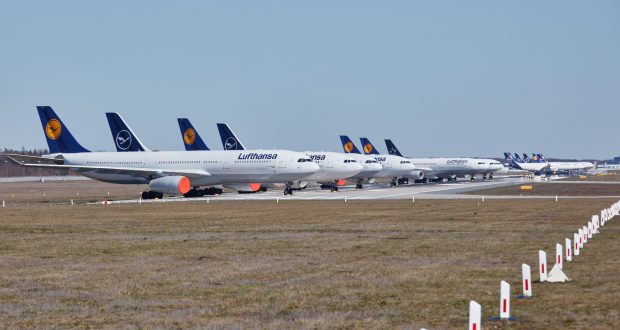

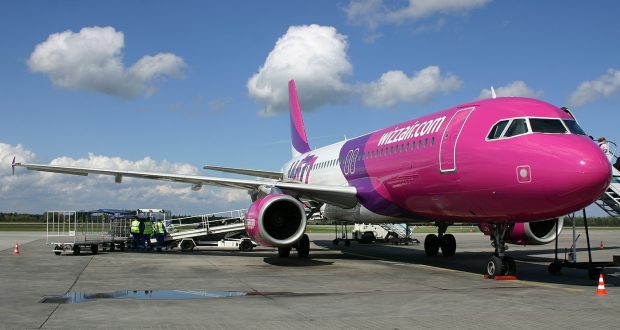
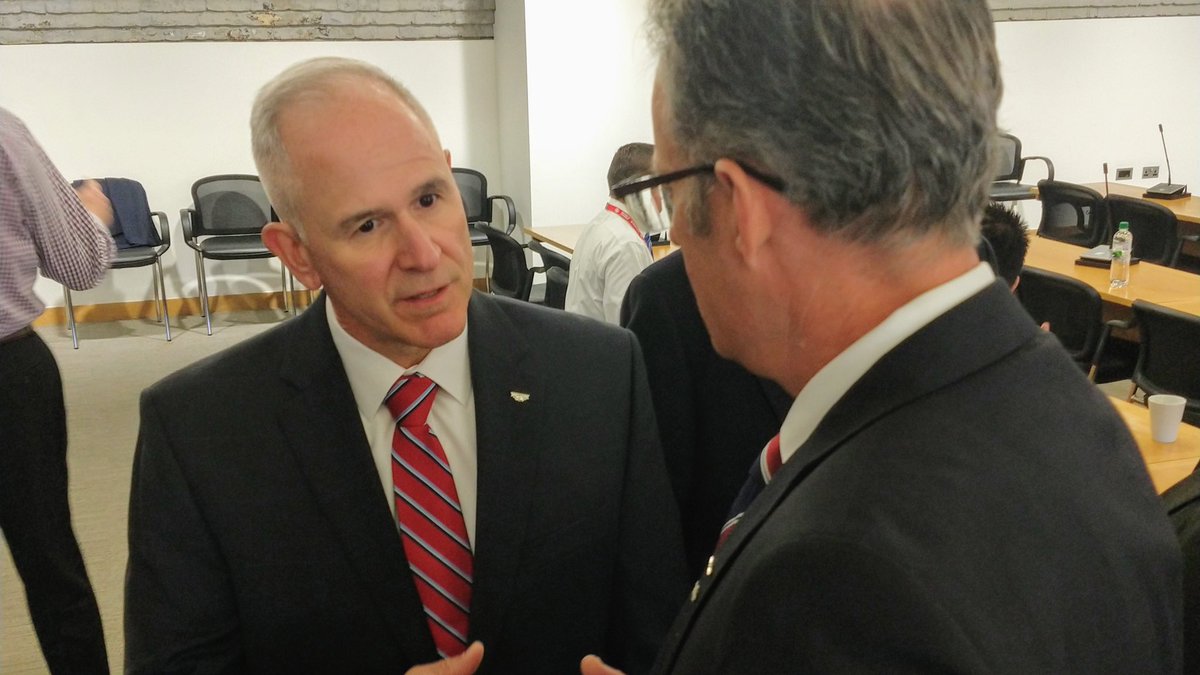
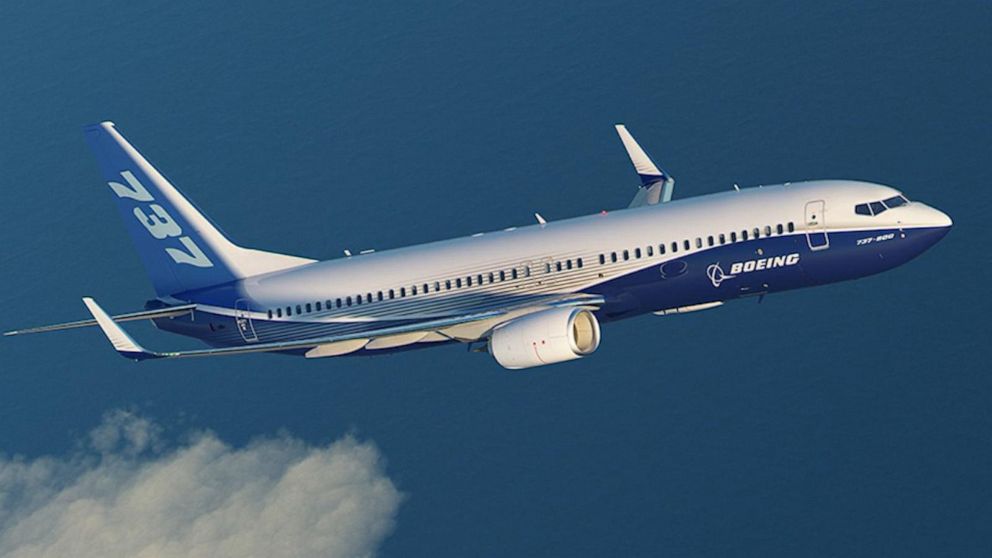
Ingen kommentarer:
Legg inn en kommentar
Merk: Bare medlemmer av denne bloggen kan legge inn en kommentar.